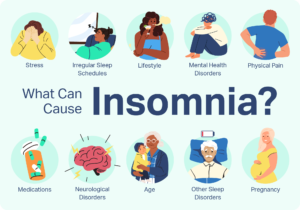Maintaining Mental Health: A Guide to a Happier, Healthier You

Mental health is as crucial as physical health, yet it often gets overlooked. In a fast-paced world, balancing work, relationships, and personal time can feel overwhelming. Maintaining good mental health isn’t just about avoiding mental illness; it’s about enhancing our well-being and building resilience. Here are some ways to maintain your mental health with practical tips and relatable insights.
Understanding Mental Health
Mental health encompasses our emotional, psychological, and social well-being. It affects how we think, feel, and act. Good mental health helps us handle stress, relate to others, and make choices. Poor mental health can lead to mental illnesses such as depression and anxiety.
The Importance of Mental Health
Consider these statistics:
- 1 in 5 adults in the U.S. experience mental illness each year.
- Depression is the leading cause of disability worldwide.
- Anxiety disorders affect 40 million adults in the U.S., but only 36.9% receive treatment.
These numbers highlight the importance of prioritizing mental health. Here are some ways to maintain and improve your mental well-being.
1. Stay Active
Exercise isn’t just about physical fitness; it’s a powerful tool for mental health too. Regular physical activity can reduce anxiety and depression, improve mood, and boost self-esteem. Imagine the rush of endorphins after a good workout or the sense of accomplishment after a long walk. These moments contribute significantly to mental well-being.

2. Connect with Others
Humans are social creatures. Building and maintaining strong relationships can provide emotional support and combat feelings of loneliness. Whether it’s catching up with a friend over coffee, joining a local club, or participating in community events, these interactions can make a big difference. Social connections create a support network that we can rely on during tough times.
3. Manage Stress
Stress is a part of life, but chronic stress can take a toll on mental health. Finding healthy ways to manage stress is crucial. Techniques like deep breathing, yoga, and mindfulness can help you stay grounded. Think of stress management as a toolkit—you need different tools for different situations. Over time, you’ll learn what works best for you.

4. Get Enough Sleep
Sleep and mental health are closely connected. Poor sleep can contribute to mental health problems, and mental health issues can affect sleep quality. Establishing a regular sleep schedule and creating a comfortable sleep environment can improve sleep quality. A good night’s sleep can make everything seem more manageable and brighten your outlook on life.

5. Eat a Balanced Diet
Nutrition affects not just physical health but mental well-being too. A balanced diet can improve mood and energy levels. Think of your body as a complex machine that needs the right fuel to run efficiently. Incorporating a variety of nutrient-rich foods, staying hydrated, and limiting sugar and processed foods can enhance your mental and physical health.

6. Seek Professional Help
Sometimes, self-care isn’t enough. Seeking help from a mental health professional can provide the support and tools needed to improve mental health. Therapy can offer new perspectives, coping strategies, and a safe space to explore your feelings. Remember, reaching out for help is a sign of strength, not weakness.
Maintaining mental health is an ongoing process. By staying active, connecting with others, managing stress, getting enough sleep, eating a balanced diet, and seeking professional help when needed, you can enhance your mental well-being. It’s okay to prioritize your mental health. A happier, healthier you is worth it. Remember, taking small steps today can lead to significant improvements in your mental health over time. So, take a deep breath, reach out to a friend, or take a walk in nature—your mental health journey starts now.
